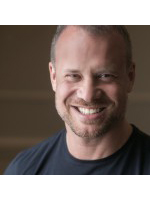 I’m sitting at my desk this morning, enjoying an enormous espresso and wondering why there are no yellow sticky notes left, when it hits me: I have to go buy those sticky notes myself.
I’m sitting at my desk this morning, enjoying an enormous espresso and wondering why there are no yellow sticky notes left, when it hits me: I have to go buy those sticky notes myself.
Over the past decade, I built a very successful real estate development company, which at one point employed more than 30 people and had two offices in Vancouver.
I often found myself shuttling between these two boardrooms for meetings if I wasn’t travelling the world for face-to-face encounters with clients. But after 10 years, I started looking for new challenges.
In January, I sold the company and bought a new condominium that had space for a home office. I moved some walls, laid down wide-plank bleached-oak floors and hung art.
Founder and sole employee
Now, as the founder and sole employee of David Allison Inc., I work with companies around the world to make their brand more engaging by involving artists, retooling their story, aligning them with other brands or any number of other strategies that deliver on my corporate call to arms: “Let’s make things interesting.”
All this happens a few purposeful strides from the Nespresso machine in my kitchen.
According to writer/artist Douglas Coupland — who spends a lot of time thinking about the future and how technology is affecting our lives — my desire for a less corporate, more self-directed business life won’t seem so brave (or foolhardy, depending on your perspective) in a couple decades’ time.
“In 20 or 30 years, we will look back on nine-to-five employment for a company in an office as an inhumane thing we did that we can’t believe we ever bought into,” he said. “It will be thought of the same way we now think of child labour or sweatshops.”
The executional trade-offs are immediately apparent. In exchange for more freedom and a more creative work/life balance, I have to buy sticky notes — and schedule meetings, clean the boardroom, make coffee and book my own flights. These are the easiest things to get used to.
What’s harder is the mental adjustment required to pilot your own ship without a co-pilot or without traffic control — that infrastructure of experts who were hired because they were better than you at doing very particular things.
Lessons learned
Here are the three most significant lessons I’ve learned in the first few months:
- Lesson one: Nothing happens as fast as you think it will, or want it to. Start planning in months instead of weeks. Even better, think in terms of quarters. That internal project that once took a month from start to finish? It will take four months now. Roll with it.
- Lesson two: Outsource everything. Go nuts. Anything you can pay someone else to do so that you can focus on making money — do it. I can’t remember the details, but a couple of economists from Harvard or Yale or Brown did a study that showed that even during their most cash-strapped student days, hiring others to do things that weren’t revenue-producing was economically the most profitable thing to do, even though it may seem counter-intuitive. I’ve always lived by this rule. It works. Especially in a company of one.
- Lesson three: Remember how to say no. Be brutal. You’ll find a tsunami of potential time-wasting activities that can eat up an entire day. You can’t volunteer for every good cause that comes along or talk to every young hopeful looking for a mentorship moment.
According to Jean Oplinger, a Seattle-based executive coach with clients throughout the Pacific Northwest, self-employment at the C-suite level often makes sense for leaders looking for a new challenge. “They can offer wisdom and expertise, without the responsibilities of multiple paychecks to sign,” she said.
That said, Oplinger cautions leaders wanting to go this route to “know your brand, make sure you are having fun, and know where you are going. Clarity of direction equals efficiency of effort.”
As I write this in my bathrobe at 11:16 on a Saturday morning, I’m admittedly blurring work and life — as I do now seven days a week. But, as Oplinger suggests, I know my brand and I’m having fun. Now, if only somebody would reserve my favourite lunch table and refresh the foyer flowers, I’d be all set.
This column was adapted from an article originally printed in the October 2015 issue of BCBusiness Magazine.
David Allison works with executive teams in real estate development and other industries to craft the early-stage vision and brand for projects of all kinds. He crystallizes the most interesting version of any story for early stakeholder engagement, internal audiences, regulatory approvals, consultant briefings and investor recruitment. His award-winning work in the real estate sector alone spans decades and continents. His most recent book, The Stackable Boomer, examines the movement of baby boomers to multi-family homes, and includes research results from a 1,000-boomer survey. He can be reached at david@davidallisoninc.com.







